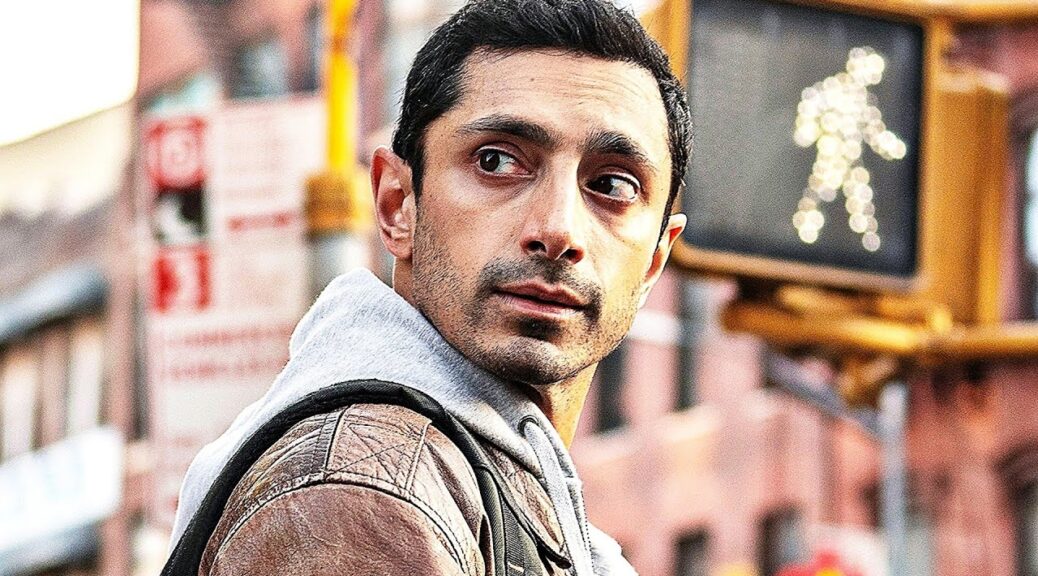Relay
by Hope Madden
It’s been nearly a decade since director David Mackenzie’s brilliant neo-Western Hell or High Water delivered a moseying goodbye to a long-gone, romantic notion of manhood. After a successful run of TV series and miniseries, Mackenzie’s back to the big screen with the twisty thriller, Relay.
Riz Ahmed stars, though he does not speak for at least twenty minutes and we don’t learn his character’s name until the final act, as a professional middleman. Whistleblowers who turn coward under the pressure of big, ugly corporate malfeasance and cover ups rely on him to broker deals. Evildoers get back all the evidence and, for a fee, they leave their former employee alone forever. Riz keeps a copy, just to be sure everybody sticks to the deal.
What’s most important is that nobody—not the client, not the company—ever knows who Riz is. Is this middleman a man? Is it a woman? Is it a group of interchangeable people? In a clever conceit, the middleman uses a relay service intended to help the Deaf and hearing-impaired conduct phone calls, which keeps all connection to client and company separate, untraceable, and unrecorded.
That’s a good setup, and Mackenzie—working from a lean script by Justin Piasecki—takes care to show us what we need to know, regardless of his very quiet leading man.
Ahmed is characteristically excellent, easily carrying the film in silence until Act 2. His performance is nimble, clever enough to trust that he’s one step ahead, vulnerable enough to believe he has a weakness. That’s Lily James, the would-be whistleblower who just wants her life back.
Though the two rarely share the screen, they do share a lonesome chemistry that elevates moments of contrivance in an otherwise taut piece of double crossing, out maneuvering, and personal growth.
A game supporting cast including Sam Worthington, Willa Fitzgerald, Jared Abrahahamson, and Matthew Maher keeps the surprises, tension, and humanity blooming. But it’s Ahmed whose wounded performance captures your sometimes breathless attention for the full 112 minutes.













